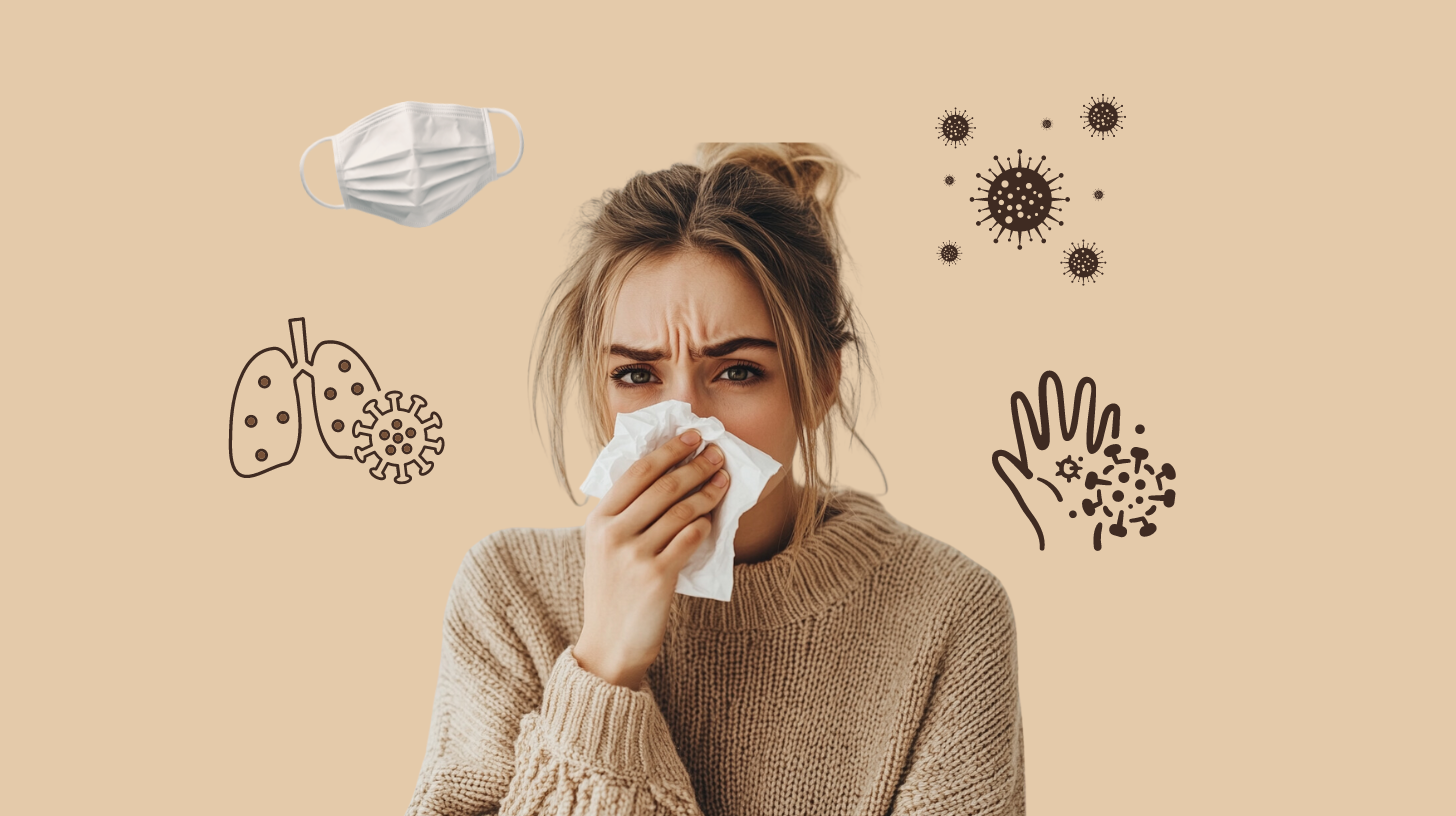
but it has significant consequences, causing anxiety and disruption in life. This condition is known as "chronic cough". It may be the body's way of signaling an underlying condition, continuing to cough until the root cause is addressed.
Causes of Chronic Cough
Typically, the body coughs to expel foreign substances and prevent them from entering the lungs. Coughs can be categorized into two main groups:
- Coughs due to infections (such as viruses and bacteria).
- Coughs related to respiratory issues or risky behaviors, which may indicate an underlying condition.
In the second group, the body responds to stimuli, irritants, or harmful toxins like weather changes, allergens, stress, lack of rest, smoking, and acid reflux. These factors can cause postnasal drip, leading to throat irritation and eventually chronic cough. Examples include:
- Individuals sensitive to triggers – such as those with allergic rhinitis, sinusitis, asthma, and chronic bronchitis.
- Coughs related to smoking – including chronic bronchitis, emphysema, lung cancer, and laryngeal cancer.
- Coughs from certain medications (especially in patients with chronic conditions) – for instance, those taking “Angiotensin converting enzyme inhibitors (ACE inhibitors)” for high blood pressure may experience a dry cough.
- Behavioral factors or risky behaviors – such as acid reflux disease and pulmonary tuberculosis.
- Other organs – including tumors (in the throat, larynx, or bronchi), brain conditions that control coughing, and laryngeal cancer.
“The majority of chronic coughs are caused by allergic rhinitis, chronic sinusitis, asthma, and acid reflux disease.” Therefore, identifying the underlying cause is crucial for precise and effective treatment.
When Should You See a Doctor?
- Coughing for 4 to 8 weeks or worsening cough – including excessive mucus, difficulty clearing deep mucus, or coughing up blood.
- Severe coughing at night, in cold weather, or during rain – that disrupts daily life.
- Coughing accompanied by other symptoms such as:
3.1. Intermittent fever or chest pain.
3.2. Easily fatigued, shortness of breath, or wheezing.
3.3. Weight loss, poor appetite, or loss of appetite.
- History of exposure to tuberculosis patients or frequent lung infections, or taking immunosuppressant drugs.
- Having chronic conditions like diabetes, heart disease, or immunocompromised status.

Examples of Symptoms Indicating Illness:
- Sinusitis – starting with cold or allergic rhinitis symptoms. Cough with phlegm tends to worsen at night due to postnasal drip. In some cases, it may be accompanied by nasal discharge and loss of smell.
- Lung cancer – as the disease progresses, it presents with chronic coughing. Some cases may involve chest pain, fatigue, loss of appetite, weight loss, or fever. If it worsens, it may lead to coughing up blood.
Self-Care for Chronic Cough:
- For infection-related coughs – treatment involves taking antibiotics or antibacterial medications.
- Drink plenty of water, especially warm water, to prevent thick mucus and help clear it more easily.
- Get adequate rest and maintain body warmth while sleeping.
- Avoid triggers such as irritants, allergens, dust, chemicals, and cigarette smoke.
- Avoid direct exposure to air conditioning or fans, as cold air can cause bronchial constriction, leading to increased coughing.
- Avoid or quit smoking.
- Use cough relief medication:
– Suitable for mild coughs. If there’s no improvement within a week, consult a doctor. Cough relief medications can be divided into two groups:
1) Cough relief with phlegm: Includes expectorants that irritate the respiratory or bronchial linings, causing secretion production and easier coughing up of mucus, and mucolytics that reduce mucus viscosity, making it easier to expel.
2) Cough relief without phlegm – dry cough/suppressant: This medication acts on the nervous system by suppressing the cough center, reducing coughing.
Using “cough suppressants” for a cough with phlegm can make it harder to expel mucus and cause side effects such as drowsiness, nausea, vomiting, and constipation.
8. Moisturize the mouth and throat to reduce respiratory irritation.
The Impact of Chronic Cough on Quality of Life
- On oneself:
1.1. Mental health: Anxiety over serious illnesses.
1.2. Physical health: Insufficient rest, bronchitis, and tears, with risks of pneumothorax and air leakage due to high pressure, chest pain, hoarseness, vomiting, burst blood vessels, hernia, and decreased ability to control urination.
1.3. Other perspectives: Poor appearance, irritation, worry, and high treatment costs when not treated accurately.
- On others: Suspicion, worry, reluctance to be near the patient, and potential transmission of infection from patient sneezing.
- For the elderly: Excessive coughing may cause rib cartilage fractures, or rupture of air sacs or capillaries in the lungs, leading to pleural effusion, shortness of breath, and life-threatening complications.
“Persistent chronic cough” may be due to “allergic reactions” or “respiratory issues and risky behaviors,” which can be treated once the cause is known. Appropriate self-care can help alleviate and manage the symptoms.




